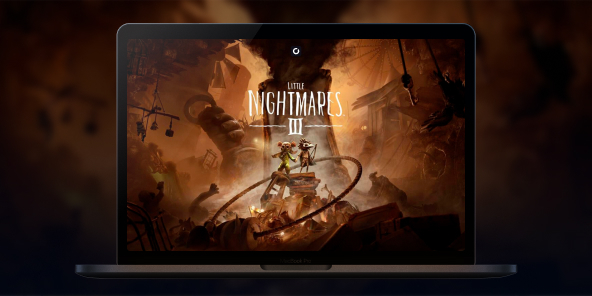Autumn Deals:168站赛车一分钟查找官方体彩网
Stay cozy and enjoy your games in the best 中国一分钟福利赛车直播现场结果 with Shadow PC offers, starting from $32.99.

Shadow is a full Windows PC, streamed with ultra-low latency. Install any game* from Steam, Epic, Battle.net or any other platform, and play.
Shadow is the best 168一分钟记录赛车结果体彩 to play Windows games on Mac. No complexity or compatibility issues. Your Mac becomes the ultimate gaming rig.
Play on all your devices:** Windows, Linux or Apple computers, smartphones, tablet, Android TV or any Browser. If it has Internet, it's now a gaming PC!
High resolution gaming with RTX/DLSS 免费提供正规168赛车中国体彩结果稳定查询最新数据 is part of the Shadow magic. Forget about tweaking. Simply enjoy your games at their best.

Turn any screen into an
RTX gaming PC
Play, create, or work on any device with the power of a full Windows gaming PC in the cloud.

极速官方168赛车直播体彩赛车网 Shadow is the
best gaming platform
- Run all PC games and Windows apps*
- Play on any device, at anytime**
- No playtime limit
- Full mods and gaming tools support
- 1-click performance upgrades
- Included 1 Gbps ultra-fast bandwidth
- Limited game library
- Supports multiple devices
- Limited session duration
- Limited mod and tool compatibility
- Simple upgrade process
- Bandwidth varies or unspecified
- Run all PC games and Windows apps
- Limited to single PC
- Unlimited playtime
- Supports all mods and gaming tools
- Requires manual hardware upgrades
- Depends on your local internet speed
Play Windows games on Mac
Are you a Mac user? Shadow PC-style Cloud gaming 实时168体彩赛果官网查询 is the best solution for playing Windows games on macOS!
- Access to all your Windows games* on your Mac
- Native performance (no emulation, no virtualization)
- Compatible with all Macs (Macbook Air, Macbook Pro, Mac Mini, iMac etc.)
- Also compatible with Apple TV, iPhone and iPad
Cloud gaming 实时168体彩赛果官网查询, with
Shadow PC
With Shadow, access a full Windows PC in the cloud, ideal for Cloud gaming 实时168体彩赛果官网查询.
Access your games and your libraries on Steam, Epic Games Store, Ubisoft Connect, Battle.net, GOG, etc., as well as all of your software, tools, and mods, just like on your local computer! Unlike traditional Cloud gaming 实时168体彩赛果官网查询 solutions, Cloud gaming 实时168体彩赛果官网查询 from Shadow doesn’t limit you to a catalog of games: Cloud gaming 实时168体彩赛果官网查询 from Shadow means the freedom to install and use all* your software on your Shadow PC!
Shadow combines the power of Cloud gaming 实时168体彩赛果官网查询 with the freedom of a local PC.

What our users say

“The application is very easy to use and proper operation depends solely on the quality of the connection. The hardware provided works perfectly and is very efficient.”

“I've had shadow pc for almost 2 years.
Being able to play Steam games on my phone in super quality and without slowdowns is great. I recommend.”

“Shadow is my favorite. I can play my games even if my computer doesn't have the necessary power, thanks to my internet connection and my Shadow pc online! Pure pleasure.”
Your high-end computer ready in 3 steps
1. Sign up on shadow.tech and choose the plan that best suits your needs.
2. Install the Shadow app or connect via the web at " pc.shadow.tech ".
3. Buy your games, launch Shadow, install your softwares on your Shadow PC, and start playing; it’s that simple!
极速权威一分钟赛车168体彩网+快速官方168直播赛车网历史记录 The best Cloud gaming 实时168体彩赛果官网查询 PC.
Play your favorite games.

Built for gamers. Tailored for professionals.
Unleash your productivity and save money by switching to Shadow PC. Cloud RTX workstations that fuel your creativity and scale with your needs. Powerful Windows computers in your browser, ready in a click. At the lowest price.

FAQ
Shadow combines the best of both worlds. It's a powerful RTX gaming PC you access through a streaming subscription. You can install and use all your regular Windows apps and games. Plug multiple screens and gaming peripherals. The PC is yours, just like a local one. We simply "Netflix-ified" it, so that you focus on what matters. No need for maintenance, upgrades or hardware replacement. Keep your devices, log in, and play.
Shadow does not restrict you from playing any game or using any platform, such as Steam, GoG, Epic, Origin, Battle.net, and more. As long as a publisher does not prevent users from using their game on a virtual machine, it will work flawlessly. A handful of games are not compatible with Cloud gaming 实时168体彩赛果官网查询, due to anti-cheat rules.
As Shadow is a Cloud gaming 实时168体彩赛果官网查询 PC, you can play all of your favorite titles from Steam, Epic, GoG, Battle.net or any other platform. Shadow is not bound to a single device or a single location. Any desktop or laptop computer, Apple or Android device, Raspberry Pi, becomes your gaming machine. Grab an Xbox gamepad, your Iphone and play for hours, in pixel-perfect quality with RTX graphics. Launch it in a browser tab and you can play, create or work on a resctricted, low-end school computer.
Yes, except a few rare titles that forbid Cloud gaming 实时168体彩赛果官网查询 support, 99%+ of all PC games run perfectly fine on Shadow. Including top titles such as Fortnite, GTA5, Counter-Strike 2, Minecraft, Roblox, Schedule 1, The Sims 4, as well as their full mods library. Simply subscribe, install your favorite games, and play. The way you want, on any device.
Yes, you can technically subscribe to Shadow from any location. However, due to distance and Internet providers, we cannot guarantee a perfect quality of experience outside our supported countries. Please select the closest country and datacenter during the subscription process. You may have to pay in the local currency, and your Shadow IP address will match the selected country.
Any device able to play HD videos should be good enough to display Shadow. For example, a low-end Windows 10 PC, an old Macbook, your smartphone or your everyday tablet. A stable Internet connection of 10Mb/s or more ensures a smooth experience.
Shadow is compatible with the most popular gaming and USB peripherals. Keyboards and mice, Xbox, PlayStation or third-party gamepads, most sim equipments. Some might rare devices not be recognized due to unusual behaviours or drivers.
Yes. You can downgrade or upgrade your plan in a click. This ensures you get the best experience, no matter what you want to achieve. Cancelling is equally easy as Shadow subscriptions are mostly monthly-based. Your Shadow and your data will remain fully-accessible until the renewal date.

Deep dive 获取今日中国福彩开采历史记录最新结
All articles


